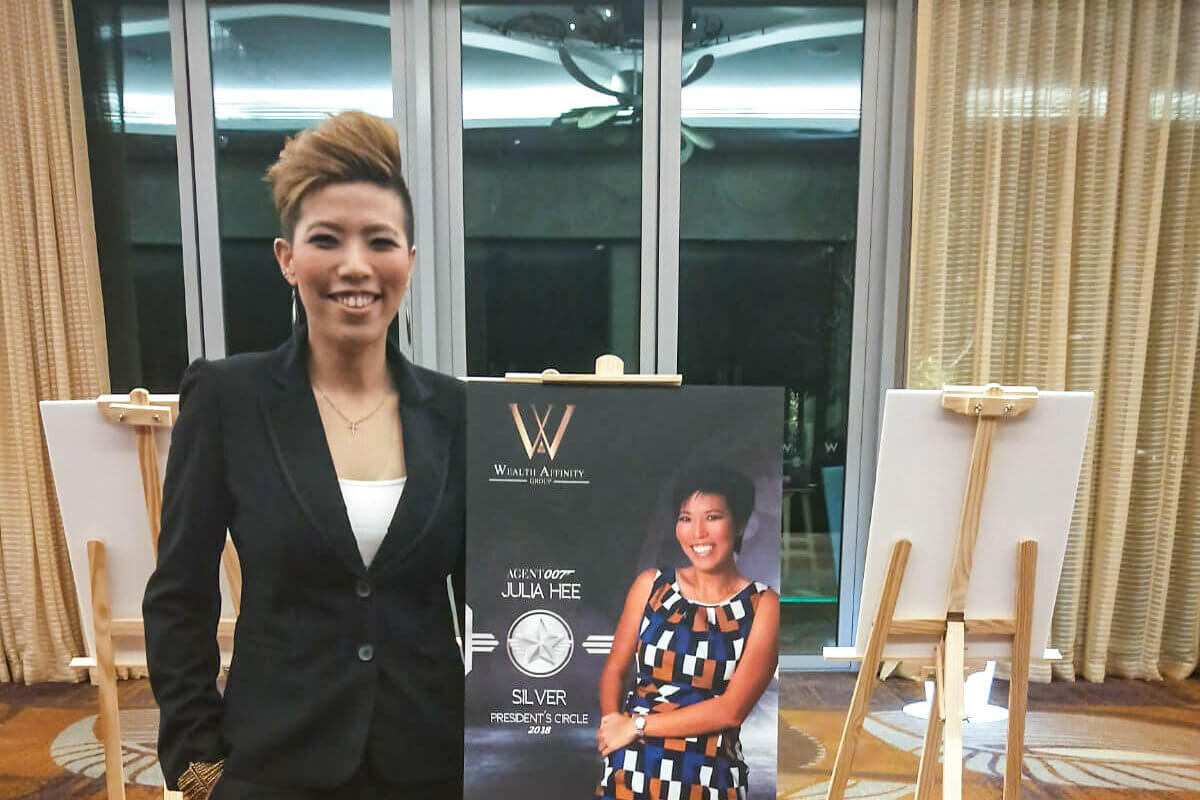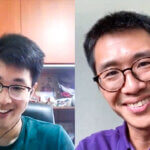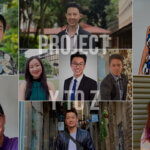This is the fifth of a seven-part ‘Project Y to Z’ series.
Project Y to Z is a ground-up initiative spearheaded by three university students—Jessica Lee and Ray Leow from the Singapore Management University (SMU), together with Lim Xuan Zheng from Nanyang Technological University (NTU). They may be a small team of three, but their ambitions for this initiative are far from small. Their hope is for Project Y to Z to be a community catalyst that brings Gen Yers and Zers closer together by sharing experiences, encouraging interactions and sparking conversations. In this project, they lay bare the realities of past job search experiences told by Gen Y 2008 graduates in Singapore who survived the Global Financial Crisis and lived to tell the tale.
By Ray Leow Wei Jian, Class of 2020 Graduand, SMU Lee Kong Chian School of Business
Joining us for our fourth Project Y to Z sharing is Singapore Management University alumna, Julia Hee. With a wealth of experience in the financial services industry, Julia is currently a Vice President at IAM Advisory Group and a Bachelor of Science (Economics) graduate from the class of 2008. Her story is a refreshing one, as she chose a career path that she did not even consider back then as a university undergraduate. Read on to learn about Julia’s job search experience during the Global Financial Crisis.
Here are 3 key things you will learn
- Know what you don’t know: Chat with working professionals or seniors to learn more about your desired role(s)
- Authenticity is key: Market your authentic self
- Open-mindedness: Challenge your own ideals
How does this Covid-19 recession remind you about your job search experience back in 2008?
There are definitely similarities that I can see: the challenging times, the frustration, the fact that employers are pickier and are extremely selective, and the opportunities are just not that abundant.
Of course, I can’t say that I am feeling those strains now given that I have already been in the workforce for more than a decade, but I can only imagine how tough it will be for the upcoming graduates—perhaps even more competition than when I went through my initial job search.
That being said, I can definitely understand the feelings that the upcoming graduates may be experiencing.
What was the biggest dilemma that you faced during the job search period?
I do remember that feeling of having to lower my expectations and be realistic because there was this balance of trying to get employed as quickly as possible, and yet not settling easily for the first job that came along so that I could start making my own keep and ease the dependence on the family income.
What happened eventually that allowed you to land a job?
I actually did everything that I said I wouldn’t do.
I was not among the best academically performing students in my cohort, very much one of those who was just trying to make it through university—to not fail any subjects and come out at the other end with a recognised degree. In terms of opportunities like landing a paid internship that leads to a job offer—it was not that kind of a situation for me. I was part of the majority that had to settle for whatever came our way.
“So, it seems like in the course of how I have progressed, I actually did everything that I said I wouldn’t do.”
I pretty much went through the positions that I thought I could settle for, sent out the CVs and accepted the first one that came my way. Even back in the day, I clearly remember saying, “I’m not going to consider a career in sales, and not going to work in a role that has to do with finance”. Like they say, ‘never say never’ right? *laugh*
So, it seems like in the course of how I have progressed, I actually did everything that I said I wouldn’t do.
When did you start your first job?
I started back in April 2008.
It’s interesting to know that you started your work not long after your examinations ended. Tell me more about your motivations for starting that early.
I was one of the few that didn’t take a break or go on a graduation trip or anything of that sort. As soon as I left school, I think within a matter of two to three weeks or so, I was in the workforce.
My decisions were for very practical reasons.
I came from an average middle-income family background. I wanted to contribute whatever extra dollars I could to ease the financial burden and build my own independence.
My frugal mindset propelled my choice of not participating in an exchange programme so as not to increase the financial expenses and burdens, even though that was something that I would have liked to pursue very much back then.
Looking back now, what would you have done differently during your job search?
No matter what you think you know, you lack plenty of information and real-life experience compared to someone who’s been there and done that.
Going back, what I would have told myself was to actually talk to more people, and be more proactive in engaging with people in the workforce for the positions that I would have liked to end up working in so as to get a better idea. I think what I knew then as a young adult really was insufficient. I was more reactive at that point in time, seeing how things went and letting nature take its course, as opposed to being a lot more proactive which I see in the younger people these days.
In your opinion, what do you think will be the key difference between the job search experience for the graduates of 2008 and the current graduates?
I think employers today look out for different things compared to before. A lot of the more traditional or archaic requirements would be (thrown) out the window. I’ll be surprised actually if employers today are sticking to the rulebooks where somebody needs to be of a certain academic calibre, and needs to possess certain qualifications. That will probably take place much earlier in the very initial filters of processing for a highly competitive position.
The interview process in the past wasn’t as holistic because I think employers didn’t give as much time to evaluate the other aspects of a candidate, but I think that it’s more inclusive of other areas today. That actually is probably more beneficial in terms of a person’s or candidate’s chances of landing a position as compared to before when they were using very limited criteria and fixed bullet points—almost as if to just check off a list.
Help hiring managers and employers get to know you better, to determine whether you’re suitable for that position.
Assuming that everyone is starting out equal, I actually think that employers today place less emphasis on academic grades. I would think that the actual skillsets or more technical experiences and a good personality would have more importance in terms of determining a job fit.
Have faith that employers and organisations will actually see beyond how well you fared in school. Try to get your conversations opened up more towards how you think and what you perceive of certain issues, your principles, your values, and your ethics. Be authentic.
What is your biggest concern for our 2020 graduating batch?
The way that we’ve been brought up, or how society values what is important, has changed, especially in the last decade.
There is a lot more weight and importance given to what an individual wants and considers, and putting that at the forefront of decision making is my worry. Trying to end up doing things according to what you wish and what you desire is sometimes overemphasised and given too much weightage.
Life is always about choices and your choice to hold onto a certain idea or ideal may not necessarily put you in the best position—you may end up doing more harm than good by merely pursuing what you think is best for yourself or what you want at the expense of having to meet real needs. You just have to be very mindful of that because we are very blessed to be in a society and environment now where there is lesser hardship.
If someone else’s differing opinion actually sticks around in your mind and you find yourself questioning more than once what someone had said, it’s probably worth exploring that further. If it’s actually stirring some kind of thinking and emotion, then it is probably worth ruminating, and to actually start challenging your own ideas to give more serious consideration for whether the opposing idea may be better than yours in the first place.
This article was originally published on LinkedIn and has been republished with permission.








